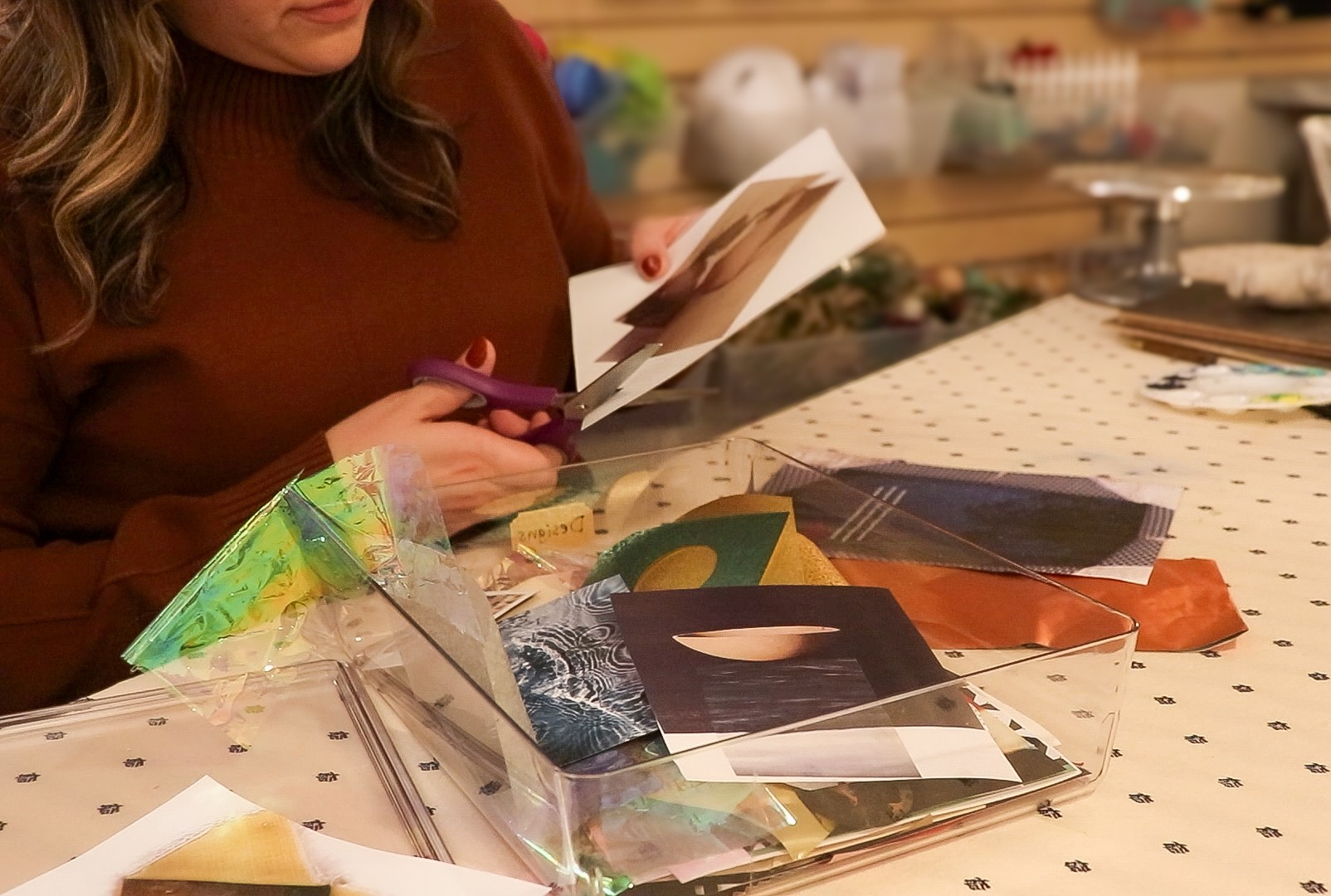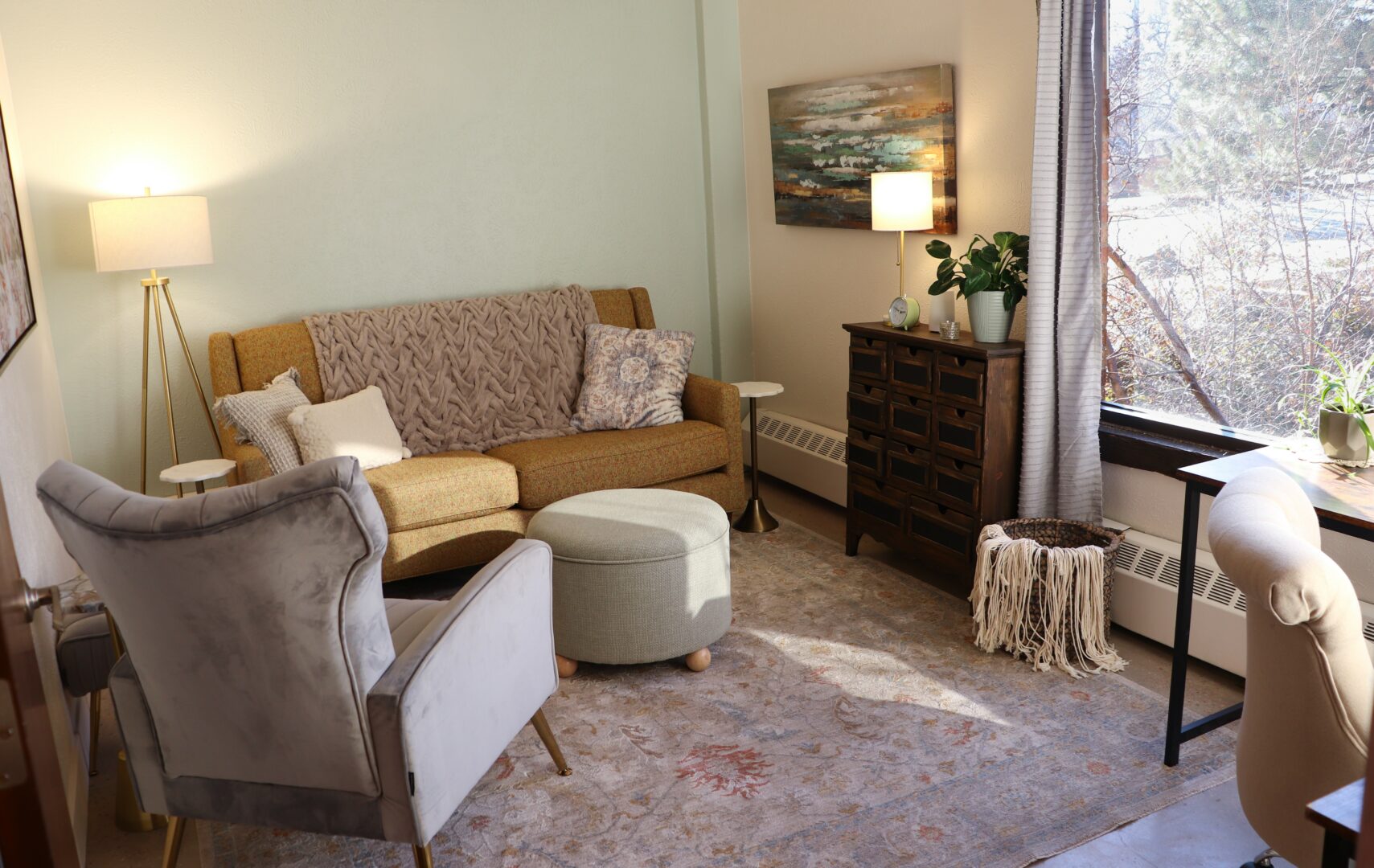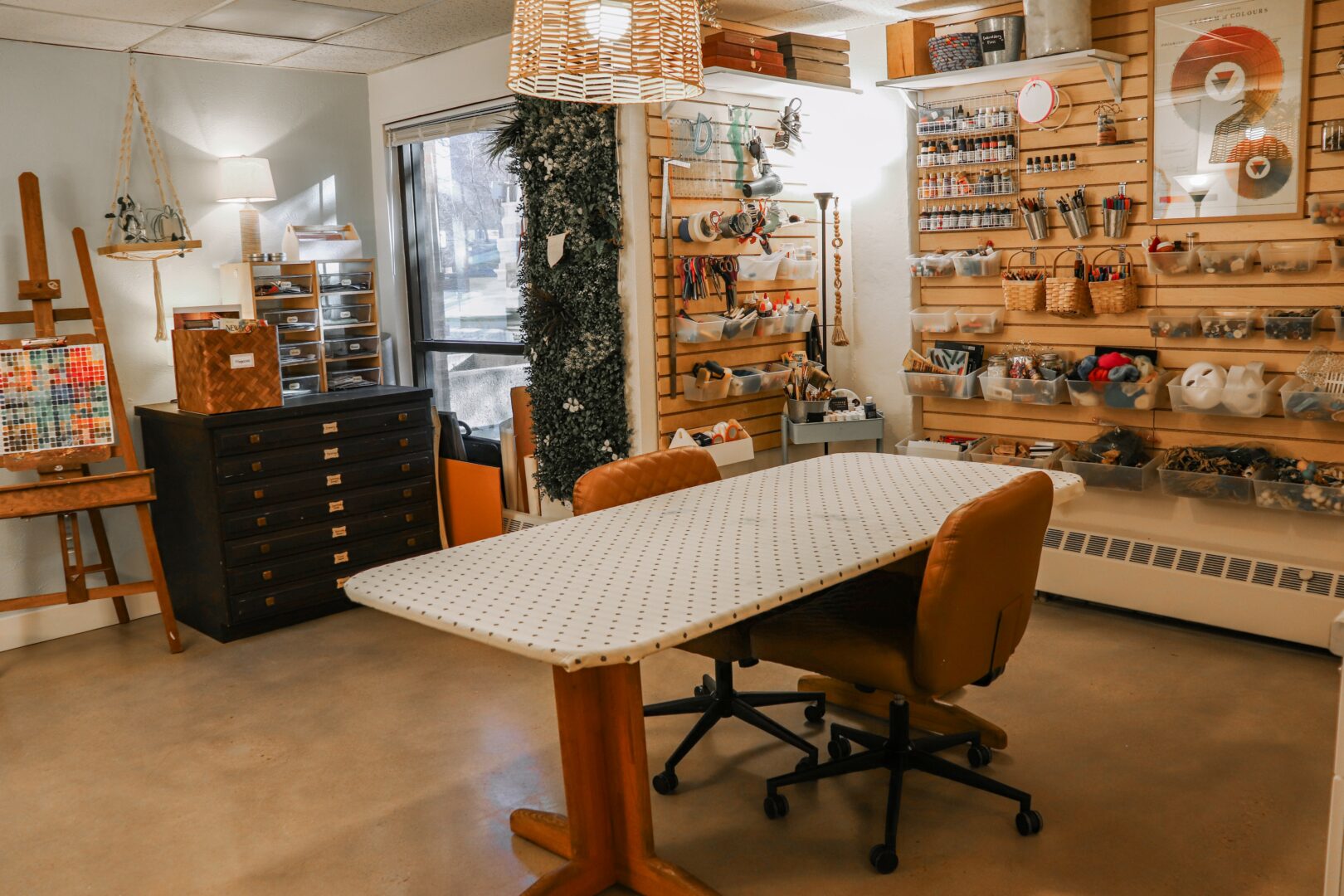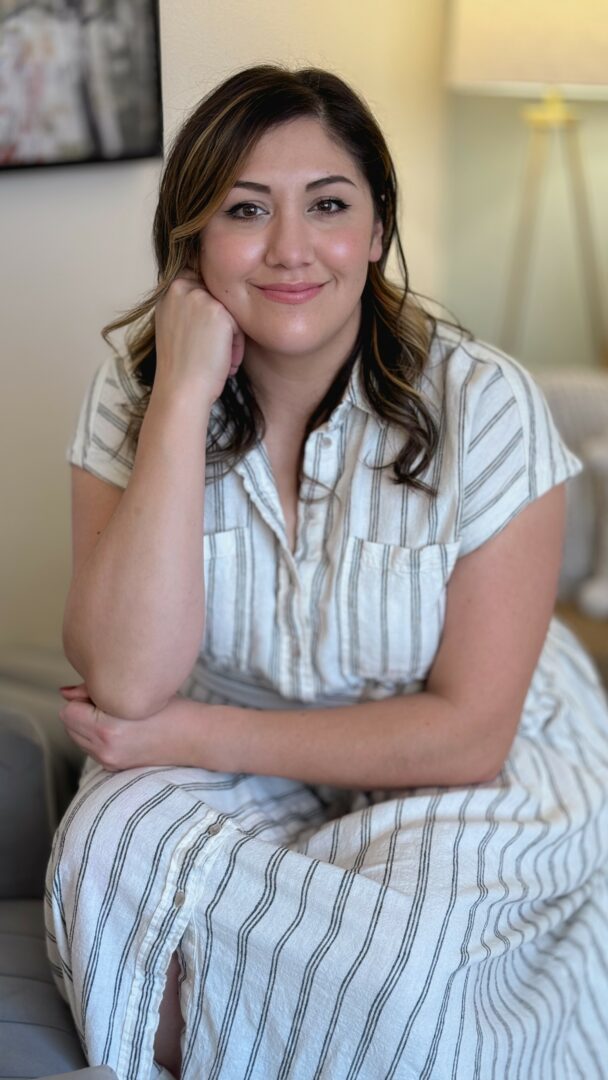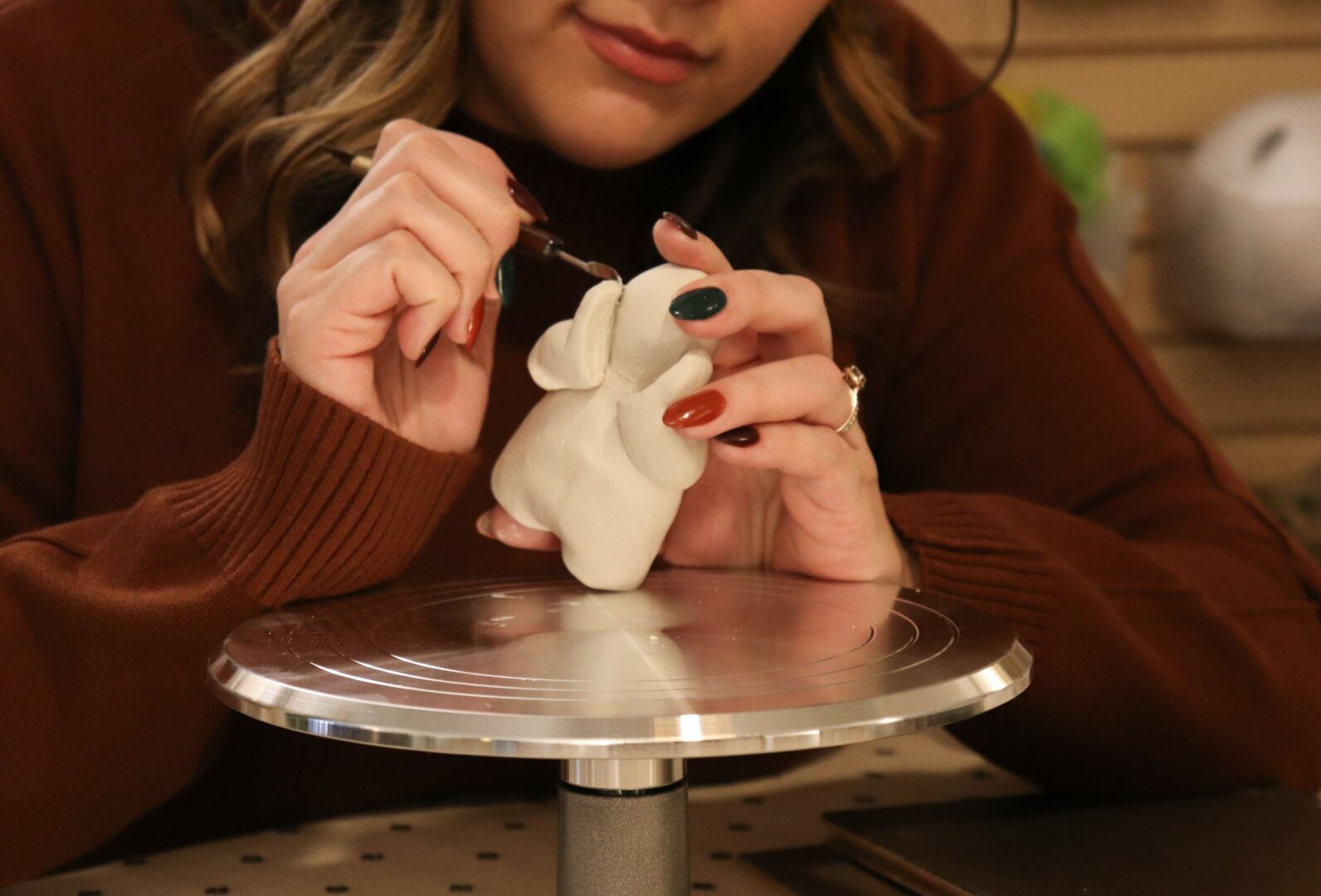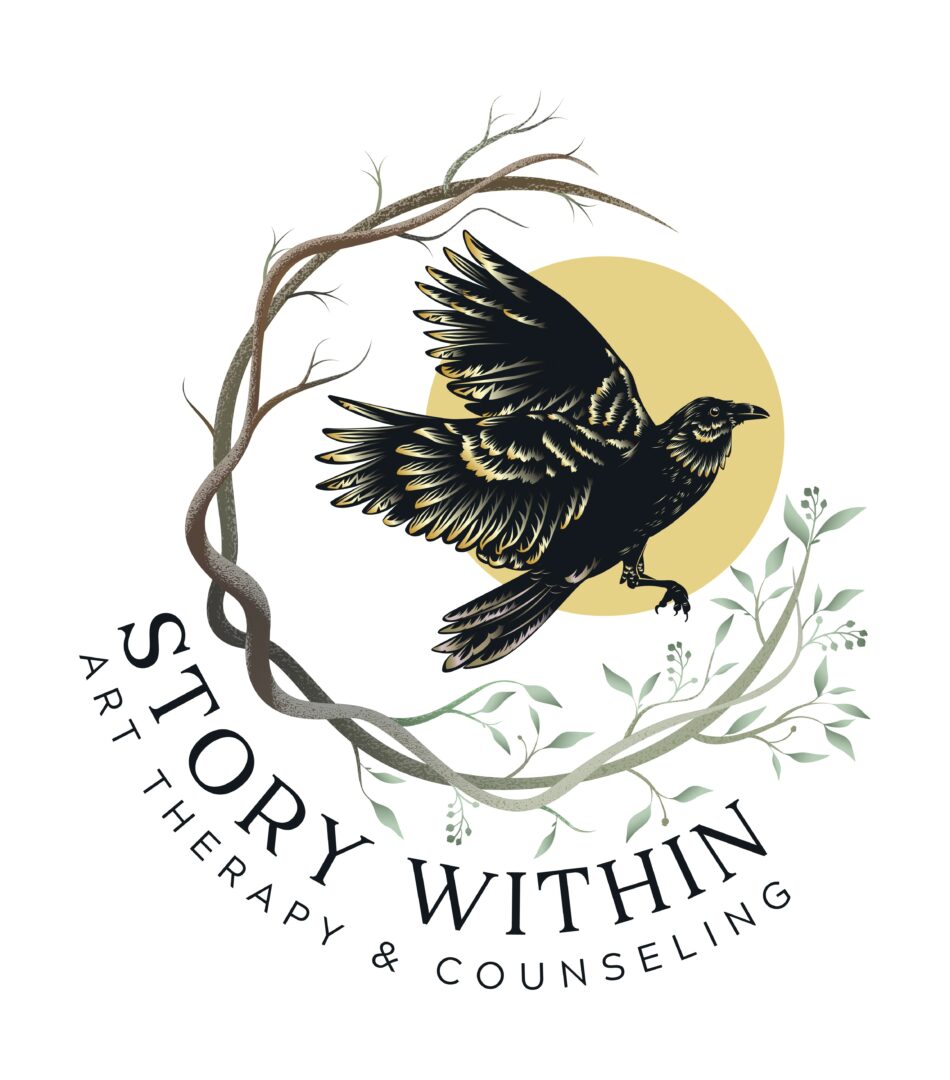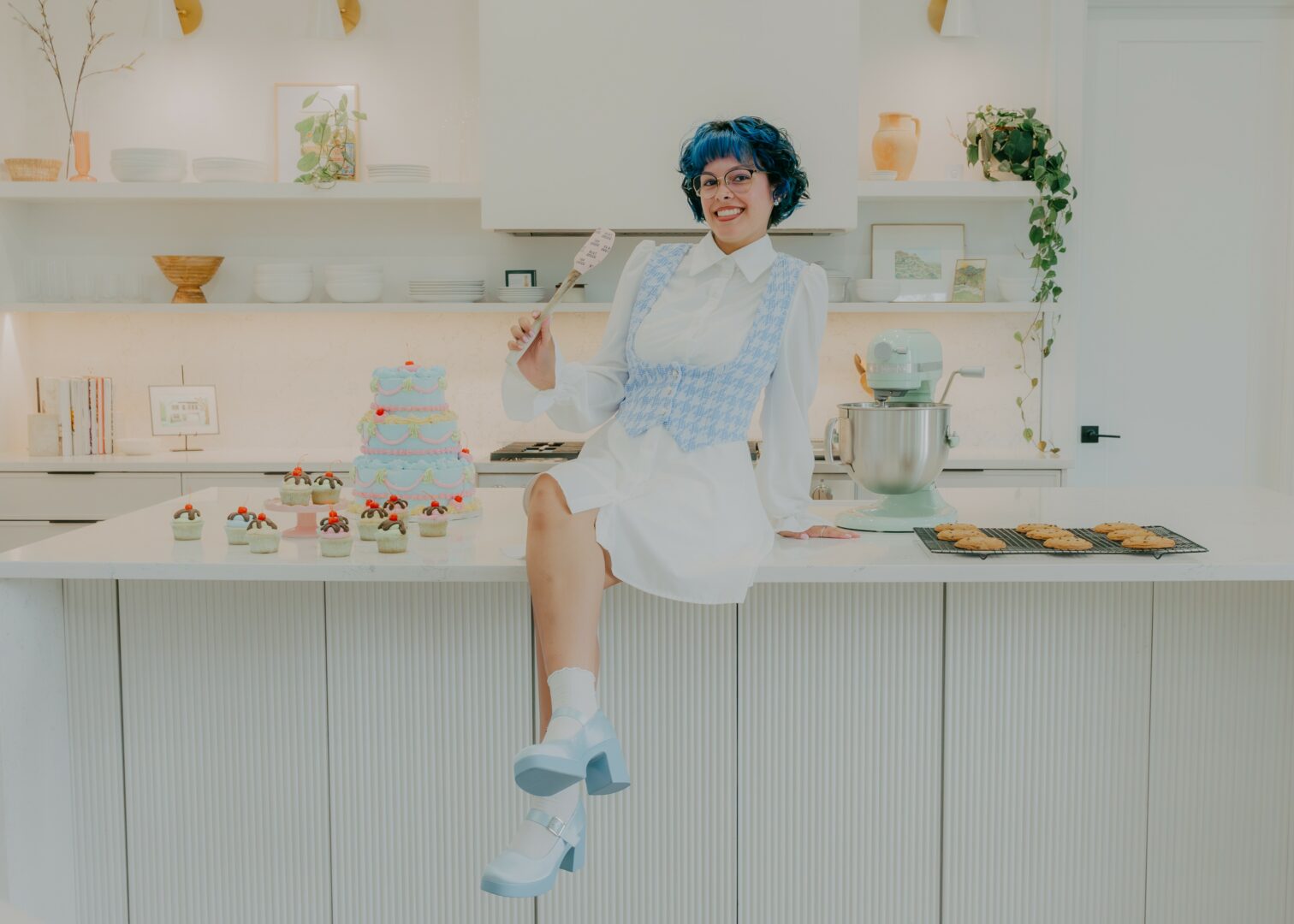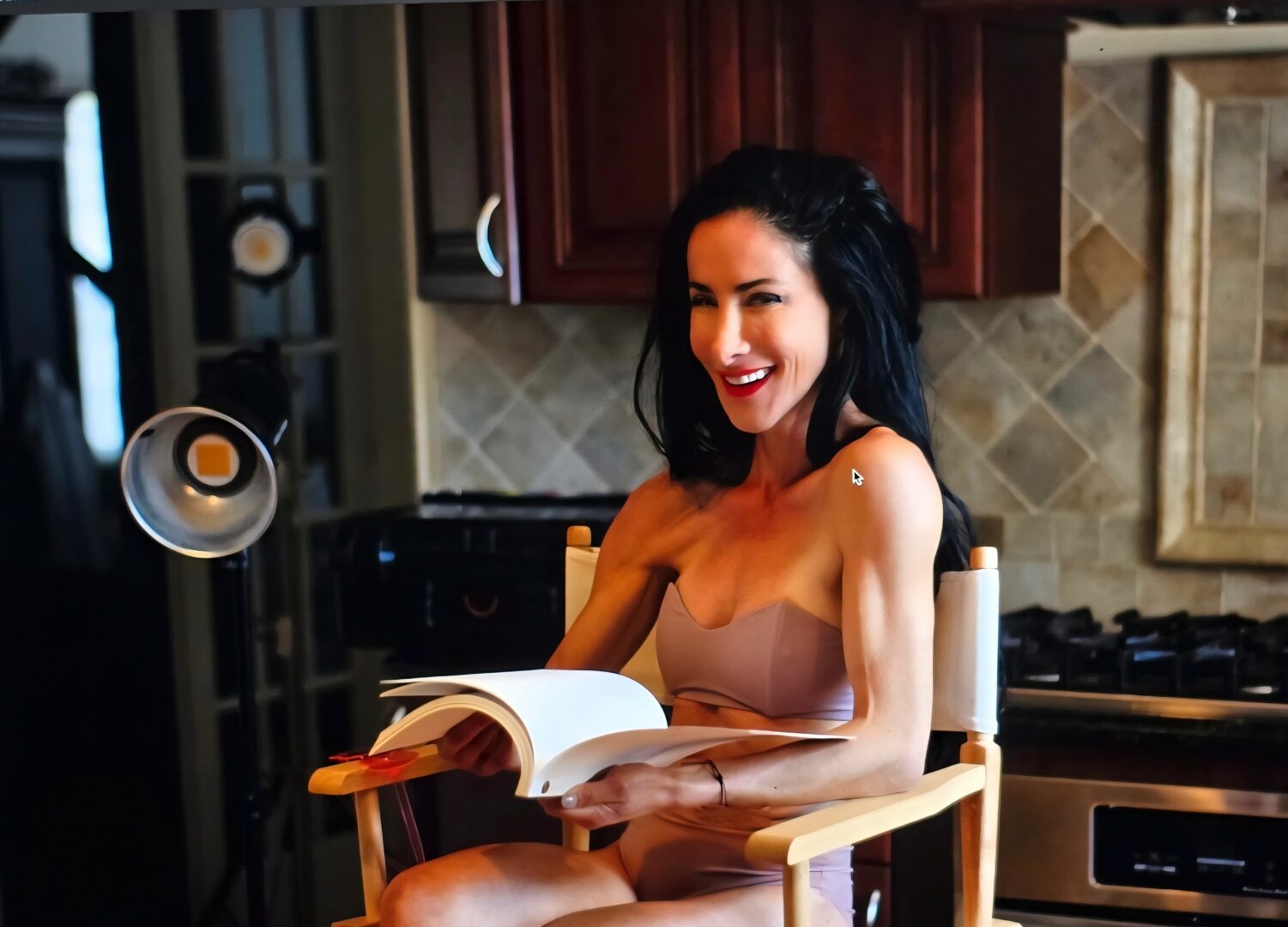We’re excited to introduce you to the always interesting and insightful Erika Poling. We hope you’ll enjoy our conversation with Erika below.
Hi Erika, thank you so much for opening up with us about some important, but sometimes personal topics. One that really matters to us is overcoming Imposter Syndrome because we’ve seen how so many people are held back in life because of this and so we’d really appreciate hearing about how you overcame Imposter Syndrome.
I don’t think I can say I have “overcome” imposter syndrome. I think I am learning to befriend it. When my sneaky inner imposter shows up it is usually a sign that I have more self-exploration to do. As an art therapist, I am constantly sitting across from someone who is looking to me for support and answers in areas of their lives in which I am no expert in at all! The perspective from which I practice is that every person is the expert of their own experience, so while I have clinical knowledge and training on counseling methods and expertise in art therapy, I do not hold a magic key to unlocking anyone’s healing. Over time and through hundreds of encounters of sitting with others in their vulnerability, I have learned that spiraling and cowering in my imposter syndrome’s grip doesn’t help me become a better therapist. Instead, I remind myself of my humanness and remember that leaning into not having the answers allows me to connect with people more deeply.
I wasn’t always this way. As someone living with anxiety, I feel much safer when I know what the “right way” and “wrong way” is to do or say things. Ever since I was younger I would scan my surroundings to see what the standard way of being was so that I could stay in line with whatever that was. I know now I was trying to avoid feelings of inadequacy. Then when I entered my art therapy graduate program my inner world started to shake. I remember asking many times what I should do if a client brings a certain issue to me and the answer I always got was “it depends.” Boy, that did not sit well. (Cue my first anxiety attack in the school’s hallway bathroom.) As much as I hate to admit this to my younger self, my professors were right to answer me this way. What I was trying to do was put humans in a box and hope that a specific treatment or intervention would cure every person that came in with the same affliction. If that were true, then I could always do my job effectively and never feel like an anxious imposter. (Spoiler alert: it didn’t work out that way.) I had to do some hard digging and get to know what my inner critic needed.
Years later, I found myself cycling through the same worry: “Will I ever feel equipped enough? Will all my peers see right through me and judge me for not being like X and Y experts?” I felt like I needed to “come clean” to my own art therapist that I was such an imposter and I shouldn’t even be in this field. I left no room for myself to be human. Then, the following day a client of mine who is also a therapist trusted me with their own imposter syndrome fears. I deeply admired this client, I knew the quality of their work, and they too dealt with their own fears of inadequacy. Watching them share this sentiment felt as if I was looking in a mirror at myself. I felt enormous compassion, respect, and tenderness towards them and, remarkably, towards myself. Then within the same week two of my clients spontaneously mentioned in session that out of all their therapists, I had been the most impactful. It was then I realized that to befriend my imposter syndrome is to sit in vulnerability—with myself and with others.
Humans are not robots (something I tell my clients frequently). We are complex and beautifully different from one another. If so many of us are experiencing imposter syndrome in a world where standards change and there is always someone better at something than us, when do we give ourselves the permission to take up space as the experts of our own experiences?
I’ve been a practicing therapist for over a decade and I still have to tame the imposter monster—but, at least now it feels like I’ve built enough muscle memory to talk myself through it. It often goes like this: “Alright, Erika… no need to mask up. You don’t know exactly what will benefit this client and it’s okay not to fake it as if you do. What is most important is showing up with compassion, genuinely connecting, asking questions, staying curious, applying the best of what I’ve learned, leaving space for trial and error, and not shaming my humanness in the process.
Great, so let’s take a few minutes and cover your story. What should folks know about you and what you do?
I’m Erika Molina Poling, Registered Art Therapist, Licensed Professional Counselor, and owner of Story Within, LLC where I provide therapy for individuals in Illinois and Colorado. After ten years creating and managing several art therapy programs for adults and children in non-profit organizations throughout Chicago and central Kansas, I decided it was time to open my own practice. Our family moved to Colorado last year and I got my business up and running as quickly as I could learn all the ins and outs of practice ownership. Over a few months I was able to expand my practice into my own art therapy studio office in Boulder. Designing my office was a labor of love as I wanted to have both a cozy talk therapy side as well as a full art-making space rich with materials for therapeutic exploration.
I work with creatively-inclined, insightful, and deep-feeling adults and older teens who are seeking to untangle the past so they can thrive in the present. I specialize in implementing art therapy through materials and metaphor to help individuals navigate past trauma, anxiety, depression, relationships, and life transitions. If you aren’t familiar with art therapy, I’d like to take a moment to explain a bit about it. Since trauma and emotional experiences are stored in the body, it is often difficult for us to verbalize their impact on our lives. This is why therapy that connects the brain and the body is critical to healing. Art therapy does just that by using purposeful materials and techniques to help individuals access deeper emotions and memories in a way that feels safe and in control. Oftentimes clients tell me their nervous systems feel less overwhelmed by the end of session. On top of that, they walk out with new skills, techniques, and creative outlets that can be used at home. I LOVE my job and how I get to facilitate deep, meaningful, and transformational moments for others. Every day I see “a-ha” moments as clients experience the power of infusing artmaking with counseling.
Outside of my private practice I host workshops, facilitate trainings, provide cosultation, and do public speaking. I’m an avid nail-art DIY-er, a true crime documentary follower, and mother to three rambunctious littles (a four-year old and 2-year-old twins).
Looking back, what do you think were the three qualities, skills, or areas of knowledge that were most impactful in your journey? What advice do you have for folks who are early in their journey in terms of how they can best develop or improve on these?
1) Working case management in community mental health- In my masters program at the School of the Art Institute of Chicago a professor advised our class that if we ever got the opportunity to work as a case manager within the community mental health sector to take it. I took her advice and pursued this as one of my first post-graduate jobs. While our coursework helped me to examine the impacts of systemic injustice, to see it firsthand within a community mental health case management position broadened my perspective immensely. Coming out of graduate school and not landing a strict art therapy job helped me build skills that would help me help others in deeper ways long term. I had to learn how to advocate for underserved individuals at doctors appointments, within social security offices, to law enforcement officers, to ER doctors, at nursing homes, to landlords, and more. I had to learn how to compassionately be someone’s payee, to distribute medications, and to help someone decide they should go to the emergency room before they potentially die. I did all of that while being the only art therapist on the team and building an art therapy program where I would provide in-home therapy or community-based groups. It wasn’t the best paying job. It was hard, I had frequent nightmares, I saw things that still pain me to this day, but the experience was invaluable for my clinical skills. I owe an enormous thanks to my case team and supervisors who always made me feel supported.
2) Continuing supervision / consultation past licensure- Most clinicians must pay for supervision hours along the road to licensure. This typically takes two years or longer. Once licensed, it certainly is an accomplishment to not require clinical supervision and to be able to work independently. For me, I found myself reaching back out to past supervisors, consultants, and peers to continue learning and growing in my clinical skills. While it has been almost a decade since I have needed formal supervision, I have definitely needed different forms of mentorship along my journey. Between switching client populations and focus areas, working at multiple agencies, starting new programs, creating trainings and workshops, navigating responses to political and social changes, becoming a mother, continuing my own emotional growth, learning new clinical frameworks, and starting my own practice, it has been invaluable to receive guidance from multiple perspectives.
3) Doing my own therapy- This one is a bit self-explanatory by now, but it really has been a major key for me in developing myself into the person I want to be. After all, I can’t expect my clients to go to places I haven’t already gone myself.
One of our goals is to help like-minded folks with similar goals connect and so before we go we want to ask if you are looking to partner or collab with others – and if so, what would make the ideal collaborator or partner?
I love connecting and collaborating! If anyone is working on a project involving mental health and art, reach out to me! Since I am new to Colorado I am looking to get plugged in, so if you’re local let’s grab a coffee. I have been hoping to get some workshops going in my new Boulder office and might develop new virtual offerings as well.
Contact Info:
- Website: www.createyourstorywithin.com (to be launched soon)
- Instagram: https://www.instagram.com/story.within?igsh=MW44dzA4N2x3dDRmZA%3D%3D&utm_source=qr
- Facebook: https://www.facebook.com/profile.php?id=61554187684438&mibextid=qWsEUC
- Linkedin: www.linkedin.com/in/erika-poling-story-within
- Other: Psychology Today: https://www.psychologytoday.com/us/therapists/erika-molina-poling-boulder-co/1168121
